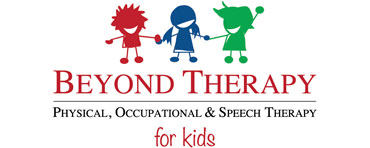I am always looking for ways to improve participation and outcomes in my speech-language pathology sessions. If appropriate for my client, I find including siblings—even for a few minutes at the beginning or at the end of a session—can provide benefits for both participants. Especially now, with a many of us using telepractice and siblings out of school learning virtually, asking a sibling to participate makes a lot of sense. The client is spending all of their time at home, so encouraging carryover through sibling participation is an easy strategy for parents to implement.
I’ve experienced all of these benefits when including siblings in sessions:
1. Siblings can help set appropriate and functional goals.
Before getting started, I set expectations and explain why I’m asking the sibling to participate. I share speech and language goals with the sibling and model how they can help their sister or brother achieve those goals. Asking specific questions encourages them to share their own goal and activity ideas:“What words would you like him to work on?” or “What /r/ words can she practice with you?”
2. Siblings can give natural speech and language cues.
Old— or even younger—siblings can serve as excellent speech and language facilitators without knowing it. During games or conversation, guide siblings to ask questions that prompt or model the clients’ speech or language goal outcomes. I always explain how these cues work before hand, so they can carry it over outside of the session. For example: “Let’s give your sister a choice now. Does she want a book or ball? Can you help me ask those questions?”
3. Siblings make sessions more fun!
Creating new activities helps motivate clients, especially when the child needs extra help working on focus and attention or whose progress plateaued. Sibling participation can help the client maintain attention, spark interest, and decrease burn out. They are natural reinforcers.
4. Siblings can help with turn taking tasks.
Especially when using telepractice, playing simple turn-taking games can be challenging. Ask the sibling to participate by taking a turn passing an object back and forth with the client or with other siblings. Getting the sibling involved with taking turns appropriately can help increase play skills and possibly help them get along better outside of sessions.
5. Siblings can reinforce practice outside of sessions.
You can easily encourage siblings to help with carrying over skills learned during sessions throughout the week. I give siblings ‘homework’ activities to do with their brother or sister. It makes the siblings feel important and helpful. Plus, the clients gets a buddy to make doing their practice assignments seem less like work and more like play.
With fun and appropriate rules, siblings can become excellent helpers during sessions and beyond. They can make speech and language intervention more motivating, enjoyable, and enhance overall outcomes. Sibling involvement can create a positive atmosphere where everyone in the family feels included, making both your client and their sibling shine and feel special.
Susannah Silvia M.C.D, CCC-SLP, is the clinical director of Beyond Therapy for Kids in Ridgeland, MS. She specializes in early language disorders, severe articulation disorders, and feeding issues. She is also an adjunct professor at Jackson State University teaching early intervention and craniofacial anomalies. Follow her on IG @thesouthernbabble or reach her at susannahsilvia@gmail.com.
